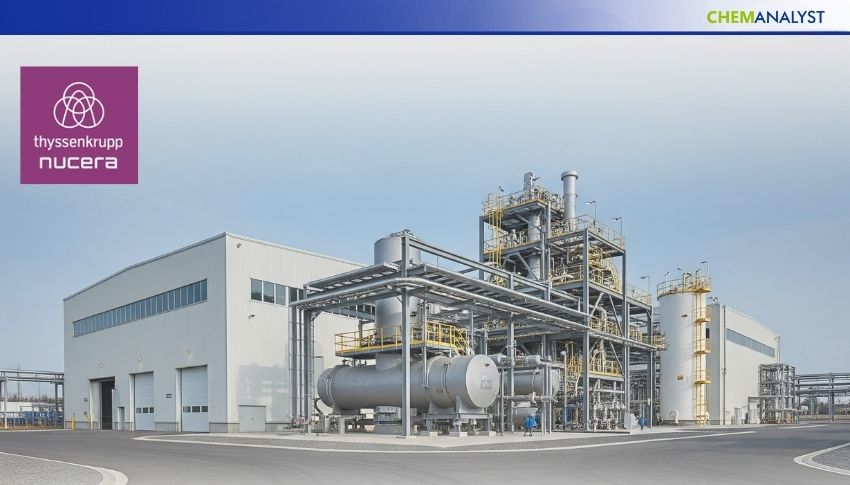Welcome To ChemAnalyst

Kumho Mitsui Chemicals has launched a new chlor-alkali plant in South Korea, powered by thyssenkrupp nucera’s e-BiTAC v7 electrolyzer. The facility produces chlorine for MDI manufacturing and recycles brine waste, enhancing sustainability and reducing imports. This strategic move strengthens KMCI’s eco-friendly production and self-reliance in the polyurethane industry.
Kumho Mitsui Chemicals Inc. (KMCI), a prominent South Korean petrochemical company and global leader in polyurethane production, has successfully launched operations at its new chlor-alkali plant in Yeosu, South Korea. This facility was developed using thyssenkrupp nucera’s cutting-edge e-BiTAC v7 electrolyzer technology, representing a significant technological upgrade for KMCI’s Methylene Diphenyl Diisocyanate (MDI) manufacturing process.
thyssenkrupp nucera, a global leader in high-efficiency electrolysis technologies, designed and supplied the plant, which is capable of producing 60,000 tons of chlorine annually. The newly operational plant enables KMCI to domestically produce chlorine, a critical component in MDI production, reducing dependency on imported raw materials. MDI plays a vital role in the production of a wide range of consumer and industrial products including spandex, thermoplastic polyurethane (TPU), synthetic leather, footwear, paints, coatings, adhesives, and elastomers.
A key environmental innovation of the new facility is its ability to recycle by-product brine generated during MDI production. Traditionally, this brine is discarded as industrial waste, but KMCI’s chlor-alkali plant integrates a closed-loop system that reuses this by-product in the chlorine production process. This environmentally conscious approach not only minimizes effluent discharge but also helps KMCI comply with South Korea’s stringent industrial wastewater regulations. Additionally, this system reduces operational costs while reinforcing KMCI’s sustainability goals.
Kwon Hyung Seob, General Manager at KMCI, emphasized the strategic value of the project, stating, “The launch of our new chlor-alkali plant marks a crucial advancement in expanding our production capabilities. It ensures a self-sufficient chlorine supply for our MDI production and reflects our dedication to providing environmentally friendly products.”
thyssenkrupp nucera played an instrumental role in the project's success, initially supplying a lab-scale test unit to assess the viability of using recycled brine from the MDI process. Following successful trials, the company was awarded an Engineering and Procurement (EP) contract in 2021 to design and deliver the full-scale chlor-alkali plant.
Commenting on the collaboration, Akira Shigeta, CEO of thyssenkrupp nucera Japan, noted, “Our proven electrolysis technology has once again contributed meaningfully to enhancing industrial efficiency and sustainability. Through brine recycling, KMCI and thyssenkrupp nucera have tackled one of the polyurethane industry’s key environmental challenges.”
This development reinforces KMCI’s commitment to sustainability and innovation, while also strengthening its position as a leader in advanced polyurethane materials.
thyssenkrupp nucera provides cutting-edge technologies for high-efficiency electrolysis plants. With deep expertise in designing, procuring, and building electrochemical facilities, the company has successfully delivered over 600 projects worldwide, totaling more than 10 gigawatts of installed capacity. Its chlor-alkali electrolysis systems are designed to reduce construction costs and enable quick, straightforward, and cost-efficient assembly.
We use cookies to deliver the best possible experience on our website. To learn more, visit our Privacy Policy. By continuing to use this site or by closing this box, you consent to our use of cookies. More info.
